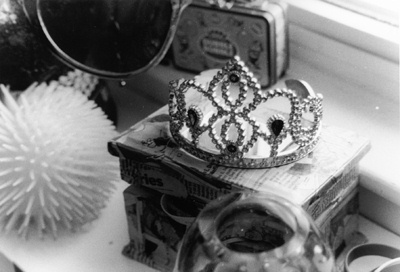All Nonfiction
- Bullying
- Books
- Academic
- Author Interviews
- Celebrity interviews
- College Articles
- College Essays
- Educator of the Year
- Heroes
- Interviews
- Memoir
- Personal Experience
- Sports
- Travel & Culture
All Opinions
- Bullying
- Current Events / Politics
- Discrimination
- Drugs / Alcohol / Smoking
- Entertainment / Celebrities
- Environment
- Love / Relationships
- Movies / Music / TV
- Pop Culture / Trends
- School / College
- Social Issues / Civics
- Spirituality / Religion
- Sports / Hobbies
All Hot Topics
- Bullying
- Community Service
- Environment
- Health
- Letters to the Editor
- Pride & Prejudice
- What Matters
- Back
Summer Guide
- Program Links
- Program Reviews
- Back
College Guide
- College Links
- College Reviews
- College Essays
- College Articles
- Back
Empress Elisabeth of Austria
At only 16 years old, Elisabeth Amalie Eugenie or known by the family nickname, Sissi, was married to Prince Franz Joseph of Austria, and later would become Empress of Austria and rule for 44 years.
Sissi grew up in Munich, in the family of Duke Maximilian Joseph. Her days were filled with adventure, horse riding, mountain climbing and gymnastics. Elizabeth met Franz in her hometown where he was introduced as a common traveler and not royalty. He was mesmerized by Sissi’s spirit, character and appearance.
“After the marriage, Sissi had to learn how to sit, eat, behave, speak and be taken care of like the future empress to-be” (Meares).
Early in her marriage Sissi gave birth to her first daughter, Sophie. There is no way she could have known that a tragedy would come to her family after Sophie's birth. Little Sophie got sick when Sissi and Franz were away. She had very high fever and diarrhea that her two year old body couldn’t handle. Sophie’s death brought Sissi to miserable conditions.
Her daughter’s death wasn’t the only tragedy that made the princess disconnect from the world and forget about herself. Sissi’s only son, Rudolf committed suicide as a love packt with his mistress. “Their deaths, reported as an apparent suicide-murder, caused an immediate scandal which made international headlines. When Rudolf was found dead, the Empress displayed great strength at first and then completely broke down. She wore black from that day on” (Schaitberger).
“Elisabeth never recovered from the tragedy, sinking further into melancholy. Within a few years, she had lost her father, Max Joseph (in 1888), her only son, Rudolf (1889), her sister, Helene (1890) and her mother, Ludovika (1892)” (Wikipedia).
“When Elizabeth was sixty years old, she followed an invitation from the Rothschild family to Geneva. Together with her lady-in-waiting, the Hungarian Countess Irma Sztáray, she walked the short distance between the hotel and the pier without her entourage, despite warnings of possible assassination attempts” (Europeana).
At the time, many warnings were spread around of possible assassination. Sissi now felt desperate and wasn’t equally involved in her royal activity, like years ago before her children’s death.
Luigi Lucheni, a poor and young Italian anarchist was planning to kill the Duke of Orleans, the day Sissi and the Hungarian Countess were in Geneva. Lucheni failed his duty as he didn’t find the Duke in Geneva, but the news was blasting that the Empress of Austria had arrived in Geneva. That day Lucheni lost the Duke, but found Sissi standing close to him. “In reality, in an act of "propaganda of the deed", he had stabbed Elisabeth with a sharpened needle file that was 4 inches (100 mm) long (used to file the eyes of industrial needles) that he had inserted into a wooden handle” (Wikipedia). The empress was stabbed directly in the heart and found death.
A lot of people in the crime scene thought it was a robbery and the wound of the stab was noticed after people started to gather around the princess who had lost conscious. The news of Sissi’s death added the pain to Franc Jozeph, who had lost two of his children and now his beloved wife.
“She seemed to be a fairy-tale princess, with the undivided love of her husband Emperor Franz-Josef and a paradigm for beauty. Yet this was not the life she was born to live and she tried to break out of her golden cage her whole lifetime” (Europeana).

Similar Articles
JOIN THE DISCUSSION
This article has 0 comments.
